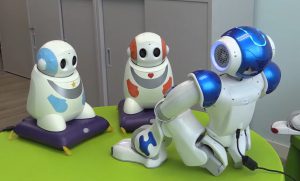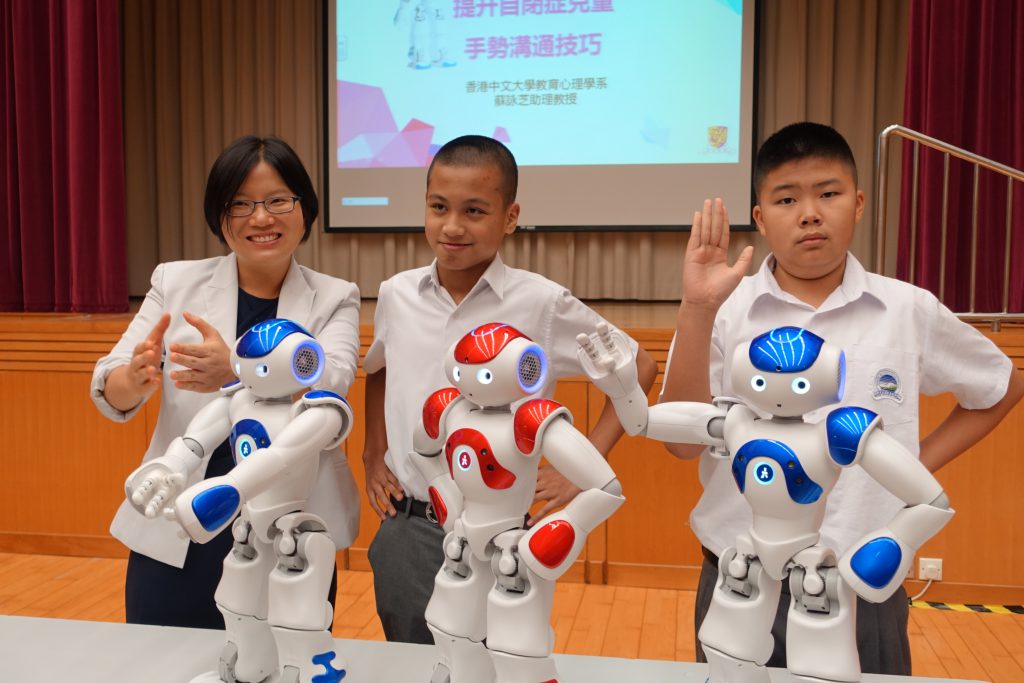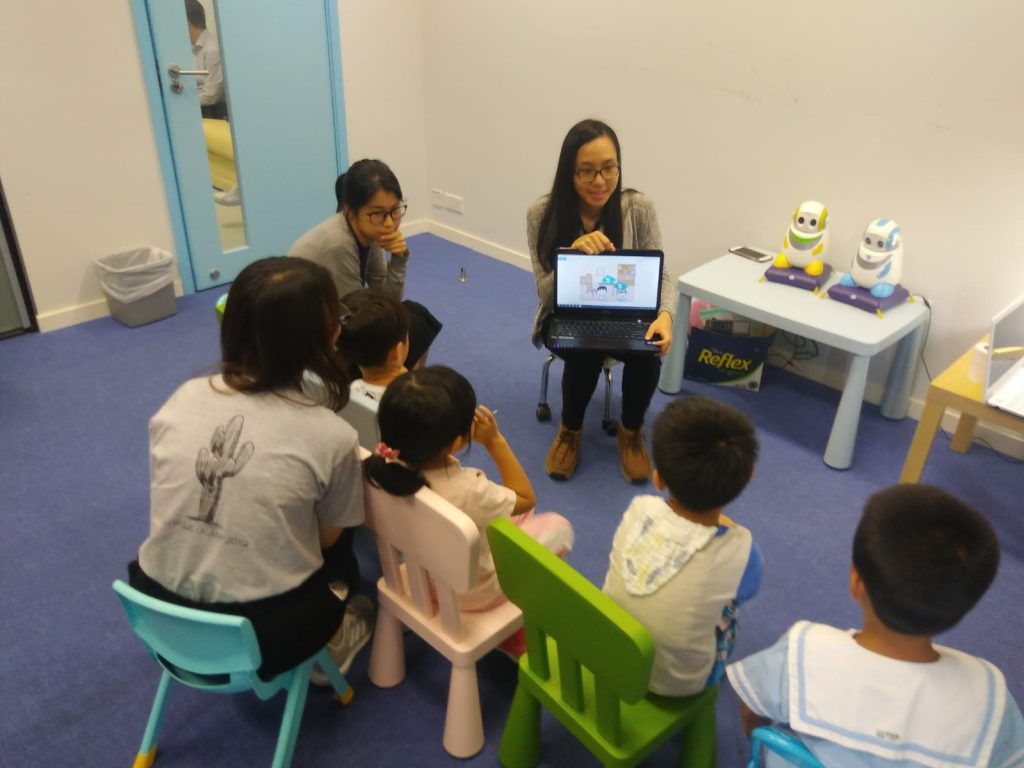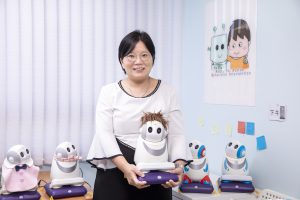Improving autistic children’s social skills with robots
Improving autistic children’s social skills with robots
Autism is on the increase: according to the World Health Organization, autism spectrum disorder (ASD) now affects about one in 160 children worldwide. Children with ASD struggle to communicate with human beings, so training them social skills using merely human-based intervention can be a challenge. Professor Catherine So introduced social robots in 2016 as a way of teaching children with ASD to communicate with others, and her research has proved that social robots are more effective than humans at teaching children with ASD. She launched the Robot for Autism Behavioral Intervention (RABI®) programme to help them, and in 2019 founded a social enterprise so it could expand and benefit more autistic children.

Social robots are equipped with a speech recognition function. Together with a language database and curriculum, they can communicate with children with ASD.
A robotic voice helps autistic children learn better
“When you receive a gift, you say ‘thank you’ and when someone is talking to you, you make eye contact with that person. These are basic social skills we learn during childhood,” said Professor So. “But autistic children are different, as they have difficulties in expressing themselves and engaging in social interaction. Repetitive teaching works best for autistic children but their parents or teachers will inevitably show impatience, which will distort autistic children’s judgements and make them more tense and anxious, affecting their learning performance.”
In 2015, Professor So published two pieces of research on the gestural communication skills of children with ASD. She found that those children often struggle to learn culturally related gestures and their learning ability is less than one-third of other children’s. This discrepancy will affect their language learning, emotions, expressive ability and behaviour in the future. These findings attracted attention from within the local special education sector, and educators discussed with Professor So the feasibility of using technology to help autistic children to learn gesture skills. She collaborated with her former colleagues at the National University of Singapore and special education teachers in Hong Kong to design robotic intervention that could be used for teaching gestural communication skills.
“We recruited a group of local children with ASD to participate in an experiment. We showed them a video of robots and, amazingly, found that they were attracted by the synthetic voices generated by robots. Unlike humans, robots do not have complicated expressions and speech tones, which results in less sensory stimulation. Children with ASD are less distracted and can concentrate better on learning than in a lesson conducted by a human teacher.”
Robot dramas improve social abilities of autistic children

Professor So launched the first social robot programme in 2016 to teach children with ASD to communicate with hand gestures.
Following these encouraging results, Professor So and her team launched a robot-based intervention programme. They first introduced a type of robot that could demonstrate to autistic children basic hand gestures such as “good” or “be quiet”. The team has also used robots in recent years to perform drama, improving autistic children’s social skills and their ability to control behaviour by interacting with the robots. “Social robots are equipped with a speech recognition function. Together with our language database and curriculum, the robots can communicate with autistic children,” said Professor So. “The research has proved autistic children’s social skills and language proficiency increased by 20%. ASD children who received robot intervention perform 20% better than those taught by human teachers in terms of their joint attention ability.”
Professor So’s remarkable achievements in using technology in special education have been widely recognised. In 2021, she was appointed as a Global Senior Leader by the International Society for Autism Research (INSAR), the society’s only representative from Hong Kong. Professor So said that she will continue her research at CUHK while undertaking academic research with peers from around the Asia-Pacific region. She hopes to establish a database analysing the behaviour and social communication of people with ASD in order to provide them with personalised treatment.

Professor So and her team have introduced robot drama demonstrations to children with ASD to improve their social skills and their ability to control their behaviour by interacting with the RABI.
“We have developed 10 training programmes with different learning purposes and goals. We hope that RABI will be more popular and welcome in the future and that more children with ASD and their families will benefit from it.”
— Professor Catherine So
Professor, Department of Education Psychology
Research areas: Child language and cognitive development
Major achievements:
- Smart People (Smart Education and Learning) – Gold Award, the Hong Kong ICT Awards (2021)
- Autism Global Senior Leader for Hong Kong, International Society for Autism Research (2021)
- CUHK Research Excellence Award (2018, 2016, 2013)





